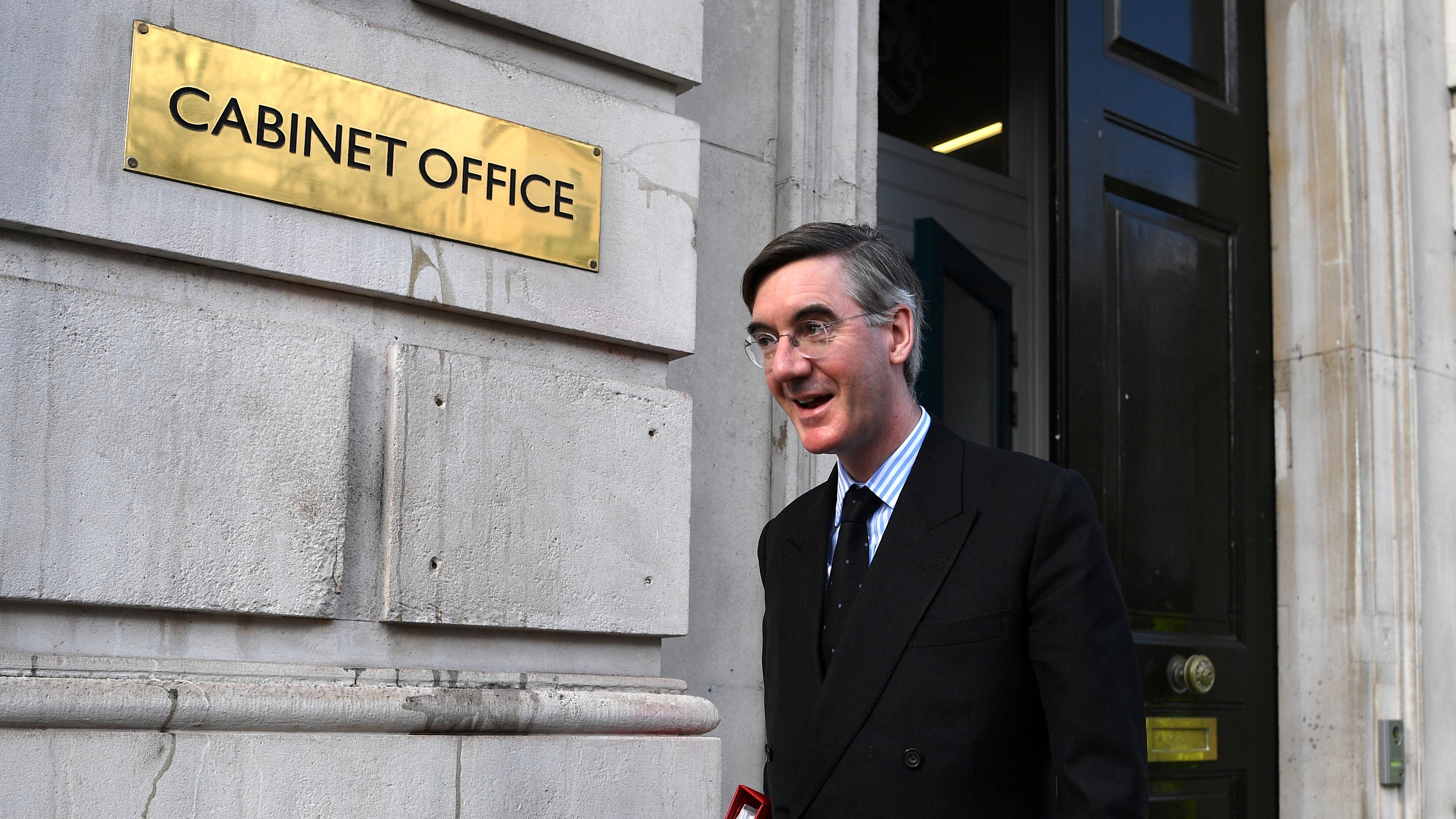Jacob Rees-Mogg loses vote on debating Westminster bullying claims
Critics said proposal would undermine new independent panel and ‘re-victimise’ victims

A free daily email with the biggest news stories of the day – and the best features from TheWeek.com
You are now subscribed
Your newsletter sign-up was successful
MPs last night voted down a proposal introduced by Leader of the Commons Jacob Rees-Mogg to allow the House to debate complaints of bullying and harassment brought against them.
An amendment tabled by Labour MP Chris Bryant ruling out debates on sanctions made by a new independent panel set up to deal with such allegations passed by 243 to 238 - “to the delight of parliamentary staffers and campaigners”, says The Guardian.
In an open letter seen by the newspaper, past and present parliamentary staff, union leaders, MPs and women’s groups had accused Rees-Mogg of undermining the new independent system.
The Week
Escape your echo chamber. Get the facts behind the news, plus analysis from multiple perspectives.

Sign up for The Week's Free Newsletters
From our morning news briefing to a weekly Good News Newsletter, get the best of The Week delivered directly to your inbox.
From our morning news briefing to a weekly Good News Newsletter, get the best of The Week delivered directly to your inbox.
The eight-member panel replaces the committee of MPs that currently decides on disciplinary action against their peers, and has the power to “impose sanctions including suspensions and exclusions of MPs in serious cases”, the BBC reports.
Although MPs were given a free vote on the Bryant amendment, Tory whips had told their MPs that the chief whip would be voting against it, in a move that The Time’s political reporter Esther Webber claims left Tory staffers “furious”.
–––––––––––––––––––––––––––––––For a round-up of the most important stories from around the world - and a concise, refreshing and balanced take on the week’s news agenda - try The Week magazine. Start your trial subscription today –––––––––––––––––––––––––––––––
Despite the intervention, the amendment won cross-party support, with new Tory MP and former employment law barrister Laura Farris arguing that a disciplinary process that “invites members to speak up for colleagues against a background of party allegiance and personal loyalties is fundamentally problematic”.
A free daily email with the biggest news stories of the day – and the best features from TheWeek.com
Labour MP Meg Hillier warned that the Commons could be used as a “bully pulpit” if public debates went ahead, with complainants potentially being named under parliamentary privilege.
That fear was echoed by Tory MP and former leader of the House Andrea Leadsom, who said that allowing complaints to be debated would “result in a complainant feeling re-victimised”. And Labour’s Jess Phillips warned that “allowing debates would stop victims from coming forward”.
The vote result was described as a “historic moment” by Amy Leversidge, assistant general secretary of the FDA Union.
“It is an astounding achievement for all the brave women and men who spoke out publicly to try and make Parliament a better place to work,” she said.
-
 The ‘ravenous’ demand for Cornish minerals
The ‘ravenous’ demand for Cornish mineralsUnder the Radar Growing need for critical minerals to power tech has intensified ‘appetite’ for lithium, which could be a ‘huge boon’ for local economy
-
 Why are election experts taking Trump’s midterm threats seriously?
Why are election experts taking Trump’s midterm threats seriously?IN THE SPOTLIGHT As the president muses about polling place deployments and a centralized electoral system aimed at one-party control, lawmakers are taking this administration at its word
-
 ‘Restaurateurs have become millionaires’
‘Restaurateurs have become millionaires’Instant Opinion Opinion, comment and editorials of the day
-
 How corrupt is the UK?
How corrupt is the UK?The Explainer Decline in standards ‘risks becoming a defining feature of our political culture’ as Britain falls to lowest ever score on global index
-
 How long can Keir Starmer last as Labour leader?
How long can Keir Starmer last as Labour leader?Today's Big Question Pathway to a coup ‘still unclear’ even as potential challengers begin manoeuvring into position
-
 The high street: Britain’s next political battleground?
The high street: Britain’s next political battleground?In the Spotlight Mass closure of shops and influx of organised crime are fuelling voter anger, and offer an opening for Reform UK
-
 The MAGA civil war takes center stage at the Turning Point USA conference
The MAGA civil war takes center stage at the Turning Point USA conferenceIN THE SPOTLIGHT ‘Americafest 2025’ was a who’s who of right-wing heavyweights eager to settle scores and lay claim to the future of MAGA
-
 Is a Reform-Tory pact becoming more likely?
Is a Reform-Tory pact becoming more likely?Today’s Big Question Nigel Farage’s party is ahead in the polls but still falls well short of a Commons majority, while Conservatives are still losing MPs to Reform
-
 The launch of Your Party: how it could work
The launch of Your Party: how it could workThe Explainer Despite landmark decisions made over the party’s makeup at their first conference, core frustrations are ‘likely to only intensify in the near-future’
-
 What does the fall in net migration mean for the UK?
What does the fall in net migration mean for the UK?Today’s Big Question With Labour and the Tories trying to ‘claim credit’ for lower figures, the ‘underlying picture is far less clear-cut’
-
 Will the public buy Rachel Reeves’s tax rises?
Will the public buy Rachel Reeves’s tax rises?Today’s Big Question The Chancellor refused to rule out tax increases in her televised address, and is set to reverse pledges made in the election manifesto